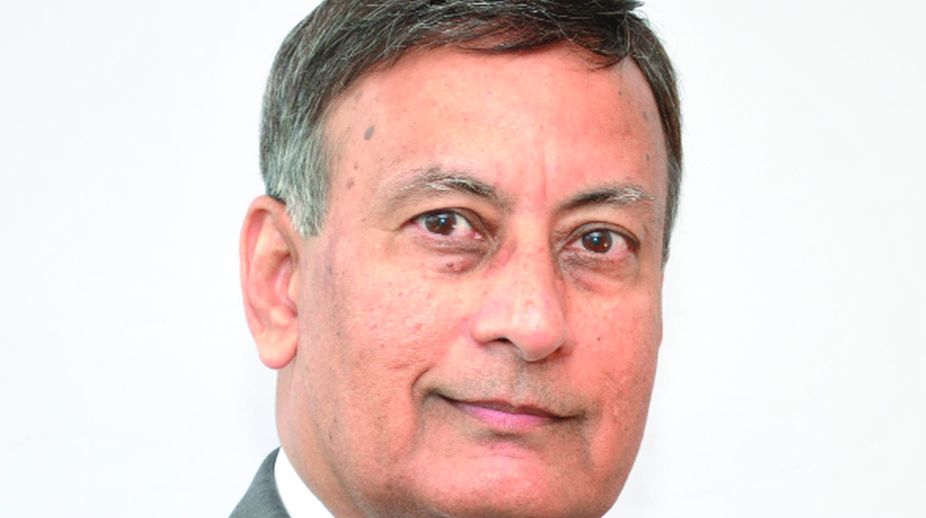People of Kerala won’t accept BJP: Pinarayi Vijayan
“The people of Kerala did not accept the BJP yesterday. They will neither accept them today nor tomorrow,” Pinarayi Vijayan said.

The echoes of hatred and contempt between India and Pakistan have successfully muted the peace talks between the two nations. In an attempt to pave the way for discussions between the countries, Husain Haqqani, Pakistan’s leading dissident public intellectual, through his latest book “Reimagining Pakistan”, provides a detailed insight of Pakistan’s inner turmoil.
Haqqani, who served as Pakistan’s ambassador to the US during 2008-11 and adviser to three civilian Prime Ministers, including Nawaz Sharif and the late Benazir Bhutto, currently lives in exile in the US. In his book, Haqqani argues that instead of painting a picture of false Pakistani pride, the flag bearers in Pakistan should allow pragmatic and rational debates and discussions within the country. In a conversation with Kunal Roy, Haqqani discusses how Pakistan lost the plot and how India could save its institutions from failing like Pakistan. Excerpts:
Advertisement
Can this book be deciphered as Pakistani’s acceptance that the country is facing many serious internal problems other than India?
I think there are many Pakistani scholars and writers, who are writing honestly and critically about what is happening in Pakistan and the challenges the country is facing. It is definitely acceptance and that acceptance is widespread in Pakistan. Pakistan has two or three unique problems ~ extremism nurtured by the State and the second is the military intervention in State and political matters. India too has extremism but so far it is not being nurtured by the State apparatus. Pakistan has ended up building an economy that is far more dependent on external support than India has.
In your book you’ve mentioned many times that a section in the country paints a picture of false Pakistani pride and those in disbelief are treated as anti-nationals. Recently we witnessed Pakistani cricketers raising the issue of Kashmir and targeting India. Are these things done to ignore the core issues? What are the effects?
In my book I’ve pointed out how the world perceives Pakistan and what is a Pakistani’s perception of Pakistan. Every country has a different view of itself than the rest of the world. In case of Pakistan, the gap is really huge. My argument is, by not allowing debate within Pakistan about the country’s reality, the leaders of Pakistan aren’t doing service to the Pakistani people. Pakistanis deserve to know the truth. The biggest example of denial of history is 16 December, 1971. Although the Pakistani military was about to surrender in Dhaka, the Pakistani newspapers carried headlines of victory on all fronts. These things don’t solve the problems.
Pakistan has always been under negative light for providing training grounds to many terror outfits. The American President Donald Trump also raised his concerns on the same. Don’t you agree that if Pakistan admits its mistake, it will benefit Pakistan the most?
Pakistan will get benefitted only by recognising that its policies haven’t worked. The rest of the world doesn’t hate Pakistan but sees the country in negative shades because some of Pakistan’s policies have been proved wrong. It is time to admit that and it is time to move forward. It is time to get respect from the world.
Your book is titled “Reimagining Pakistan”. What does a re-imagined Pakistan looks like?
A re-imagined Pakistan would have seven key points: The first one is that Pakistan will not see itself as an ideological state but a pragmatic state that makes rational policies; Pakistan will have to stop fabricating history and start acknowledging history; Pakistan should stop thinking itself as a strategic location; a pragmatic foreign policy; investment in human capital; to have a functional democracy; and the last would be recognising Pakistan as a multi-ethnic and multi-lingual nation instead of trying of enforcing one idea on the entire country.
In some of your interviews you have said you are seeing a “Pakistanisation of India”. What does that mean?
I want people of India to know that Pakistan has reached its ideological uni-polarity over the last years. India could also end up the same way by having irrational arguments, unwillingness to accept diversity, unwillingness to be tolerant. Indians have to be vigilant. Democracy is an asset to India. When I say ‘Pakistanisation of India’, I mean that India should try not to become like Pakistan, where there is lack of tolerance, democracy and diversity.
Where do you see Indo-Pak relationship standing today?
The India-Pakistan relationship is not in a good place right now. Both countries need to accept that they’ll always be neighbours. Neighbours can have disputes but they can live with one another, travel with one another, have trade with one another but we don’t do any of those things. There is a lot of ignorance. Few Pakistanis get to travel to India and vice- versa. Both are carrying a caricature of each other in their public discussions, which needs to end.
Advertisement